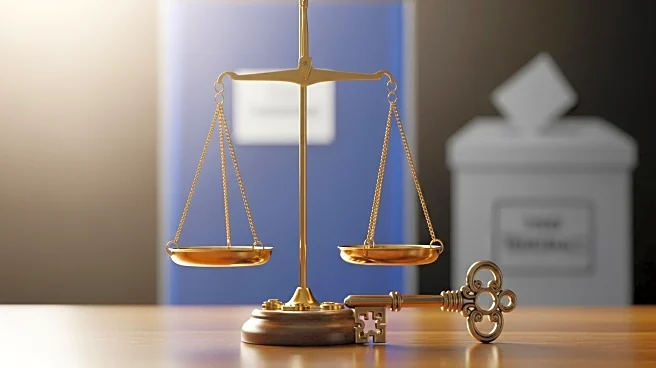What's Happening?
The Wisconsin Department of Justice has requested a judge to pause an order mandating the verification of citizenship for all 3.6 million registered voters in the state before the upcoming statewide election in February. This request follows a ruling by Waukesha County Circuit Judge Michael Maxwell, who determined that the Wisconsin Elections Commission is not adequately ensuring that only lawful voters are on the voter rolls. The lawsuit prompting this order was filed by two suburban Milwaukee voters, who argue that the state is not effectively preventing noncitizens from voting. The Wisconsin DOJ, representing the Elections Commission, contends that the order would necessitate a significant overhaul of the voter registration system, which is not currently required by state law.
Why It's Important?
This development is significant as it touches on the broader national debate over voter fraud and election integrity, issues that have been contentious in recent years. The order, if implemented, could lead to substantial changes in how voter registration is managed in Wisconsin, potentially affecting voter turnout and election outcomes. The Wisconsin DOJ's appeal highlights concerns about the feasibility and legality of the judge's order, which could set a precedent for other states facing similar challenges. The outcome of this legal battle could influence public policy and voter access, impacting both political parties and the electorate at large.
What's Next?
The Wisconsin DOJ is seeking a stay of the judge's order pending an appeal, arguing that implementing the required changes would take months and could disrupt the voter registration process. If the stay is not granted, the Elections Commission will need to devise a method to verify citizenship, potentially requiring additional documentation from voters. This could lead to legal challenges and further court rulings, as well as political responses from state leaders and advocacy groups. The situation remains fluid, with potential implications for the February primary and future elections.








